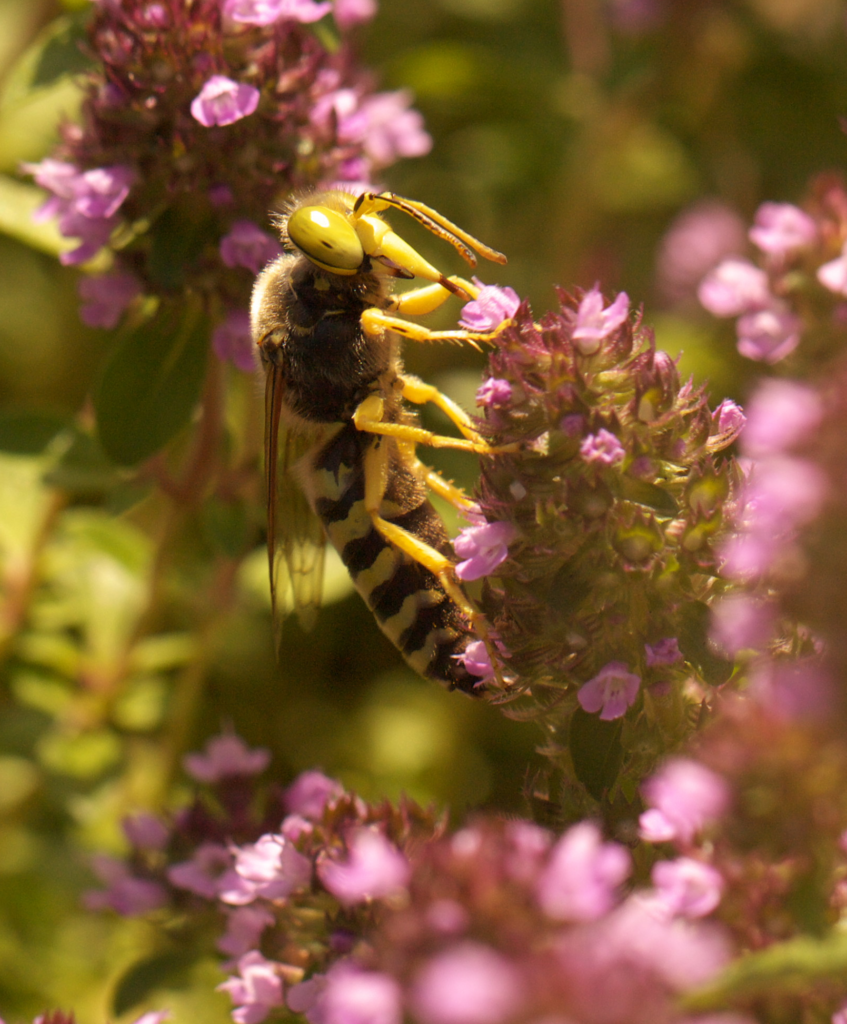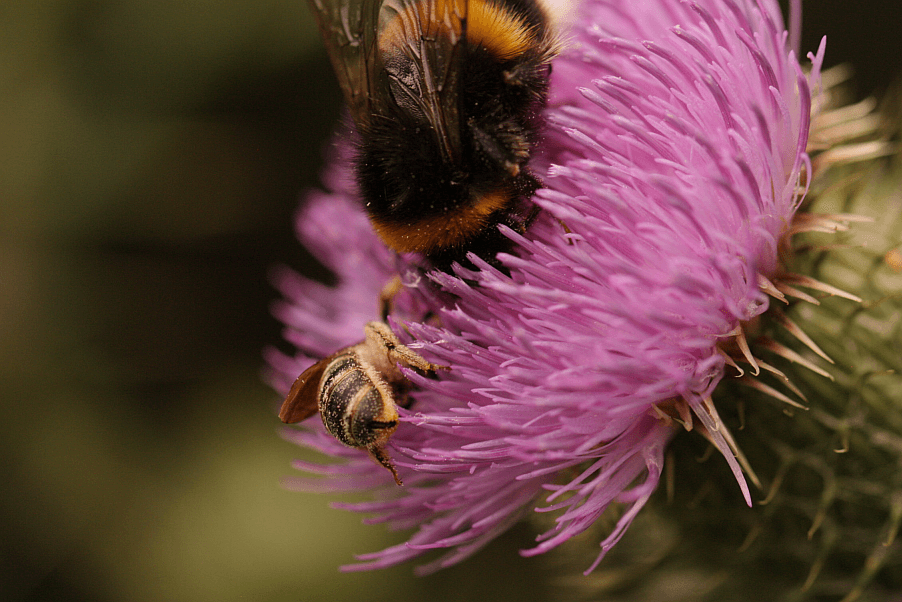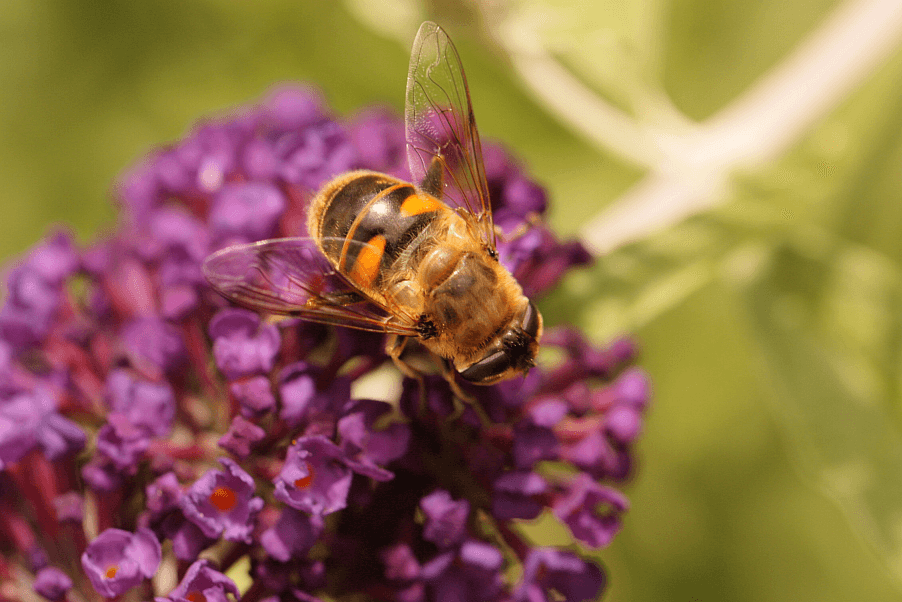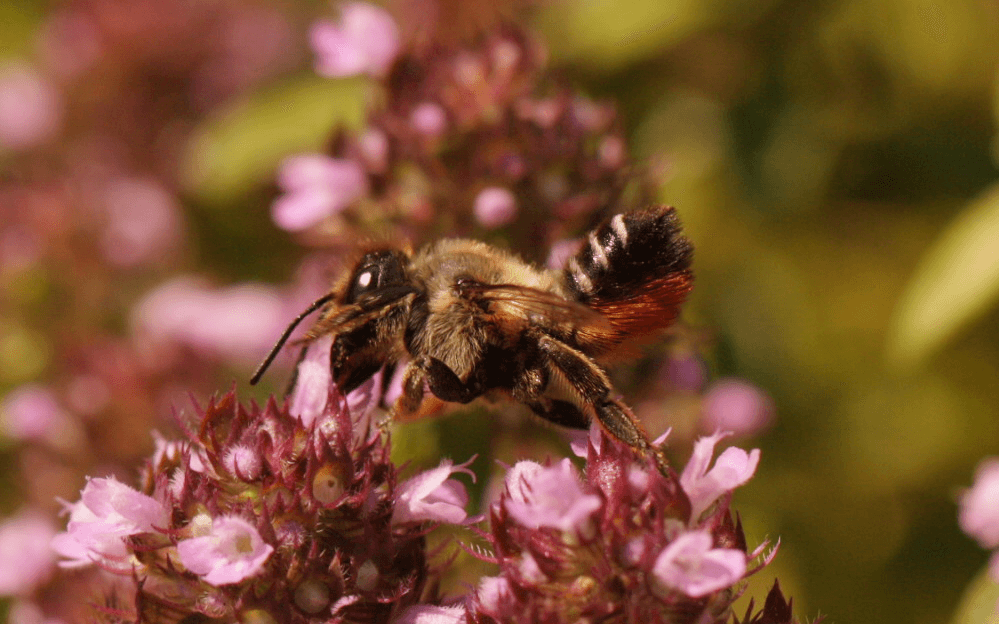Search the Blog
Latest Comments
Beatrix
Experiment!
23. April 2024
The video doesn´t work (at least for me). If I click on "activate" or the play-button it just disapp...
Katrin
Spinning Speed Ponderings, Part I.
15. April 2024
As far as I know, some fabrics do get washed before they are sold, and some might not be. But I can'...
Kareina
Spinning Speed Ponderings, Part I.
15. April 2024
I have seen you say few times that "no textile ever is finished before it's been wet and dried again...
Katrin
How on earth did they do it?
27. März 2024
Ah, that's good to know! I might have a look around just out of curiosity.
I've since learned that w...
Heather Athebyne
How on earth did they do it?
25. März 2024
...though not entirely easy. I've been able to get my hands on a few strands over the years for Geor...
More from the Not-Lawn.
The not-lawn is in blooming season now - almost all the wild thyme has flowers, and they are very much appreciated by a gazillion of flying insects. Which, to my great dismay, means that I actually have to wear shoes when crossing the not-lawn, or use the paved garden path, and keep to the more trodden-down other paths without bloom when going to the paved section. I got stung twice within a good week, even though I was walking very slowly and carefully, one wasp, one bee or probably bumble-bee. That is a good indicator of there being many more insects in our garden than last year, as I walked barefoot all year then and didn't get stung once!
Since I dislike wearing shoes at home, and the garden counts as "home", this does annoy me... but I can accept it due to the joy the number of bees, flies, wasps, grasshoppers, and butterflies the not-lawn brings. I even spotted one special bee that's on the red list, though I didn't manage to take a photo of it (yet).
There are some other beasties I did manage to get decent pics of, though:
[caption id="attachment_5441" align="alignnone" width="640"] Male Gallische Feldwespe (European Paper Wasp), polistes dominula. Note the yellow eyes!
Male Gallische Feldwespe (European Paper Wasp), polistes dominula. Note the yellow eyes!
That was the first time we saw one of these; that guy was quite a bit larger than the ladies of the same species, which can be identified nicely by their long, orangey legs that hang down when they fly. It's one of the many wasp species that are entirely unattracted by meat or cake; they are also far less aggressive than "the" wasp Vespula germanica.
Next up: A very distinctive ass.
[caption id="attachment_5439" align="alignnone" width="567"] Gelbbindige Furchenbiene, Great Banded Furrow bee, Halictus scabiosae.
Gelbbindige Furchenbiene, Great Banded Furrow bee, Halictus scabiosae.
The furrow on the abdomen is what gives the name to this kind of bee. They're a rather frequent kind of wild bee.
Next one is not a bee, but a kind of fly masquerading as a dangerous sting-posessing animal:
[caption id="attachment_5438" align="alignnone" width="902"] Probably Eristalis pertinax, a quite common kind of hoverfly.
Probably Eristalis pertinax, a quite common kind of hoverfly.
Last one is one I haven't managed to identify yet - because there's oh-so-many different kinds of wild bees and other flying insects here in Germany. I'm actually content to roughly identify them (as in down to the genus, not necessarily the species, and not even considering the sub-species), but, well, with about 600 different species of wild bees in Germany... Sad thing, though: About half of this number is on the list of endangered species, as they are quite specific about their habitat or food plants. Which is one of the reasons I will handle wearing shoes to cross the not-lawn (and do it as little as possible).
So here's my unidentified red-ass-bottomed, ass-lifting little wild bee:

If someone happens to know what it is, please tell me!
And for the German readers among you, here's one of the many pages about wild bees in Germany, with some basic info. There'll probably be a few more posts about these small flying guys, as I'm entirely fascinated by them, and I quite enjoy going on photo safari with the macro lens!
Since I dislike wearing shoes at home, and the garden counts as "home", this does annoy me... but I can accept it due to the joy the number of bees, flies, wasps, grasshoppers, and butterflies the not-lawn brings. I even spotted one special bee that's on the red list, though I didn't manage to take a photo of it (yet).
There are some other beasties I did manage to get decent pics of, though:
[caption id="attachment_5441" align="alignnone" width="640"]
 Male Gallische Feldwespe (European Paper Wasp), polistes dominula. Note the yellow eyes!
Male Gallische Feldwespe (European Paper Wasp), polistes dominula. Note the yellow eyes!That was the first time we saw one of these; that guy was quite a bit larger than the ladies of the same species, which can be identified nicely by their long, orangey legs that hang down when they fly. It's one of the many wasp species that are entirely unattracted by meat or cake; they are also far less aggressive than "the" wasp Vespula germanica.
Next up: A very distinctive ass.
[caption id="attachment_5439" align="alignnone" width="567"]
 Gelbbindige Furchenbiene, Great Banded Furrow bee, Halictus scabiosae.
Gelbbindige Furchenbiene, Great Banded Furrow bee, Halictus scabiosae.The furrow on the abdomen is what gives the name to this kind of bee. They're a rather frequent kind of wild bee.
Next one is not a bee, but a kind of fly masquerading as a dangerous sting-posessing animal:
[caption id="attachment_5438" align="alignnone" width="902"]
 Probably Eristalis pertinax, a quite common kind of hoverfly.
Probably Eristalis pertinax, a quite common kind of hoverfly.Last one is one I haven't managed to identify yet - because there's oh-so-many different kinds of wild bees and other flying insects here in Germany. I'm actually content to roughly identify them (as in down to the genus, not necessarily the species, and not even considering the sub-species), but, well, with about 600 different species of wild bees in Germany... Sad thing, though: About half of this number is on the list of endangered species, as they are quite specific about their habitat or food plants. Which is one of the reasons I will handle wearing shoes to cross the not-lawn (and do it as little as possible).
So here's my unidentified red-ass-bottomed, ass-lifting little wild bee:

If someone happens to know what it is, please tell me!
And for the German readers among you, here's one of the many pages about wild bees in Germany, with some basic info. There'll probably be a few more posts about these small flying guys, as I'm entirely fascinated by them, and I quite enjoy going on photo safari with the macro lens!



